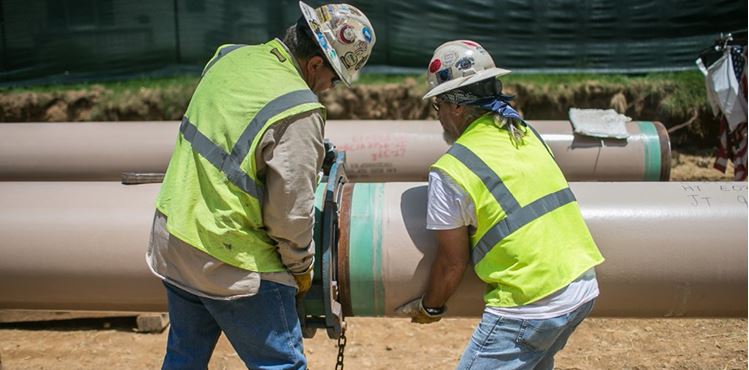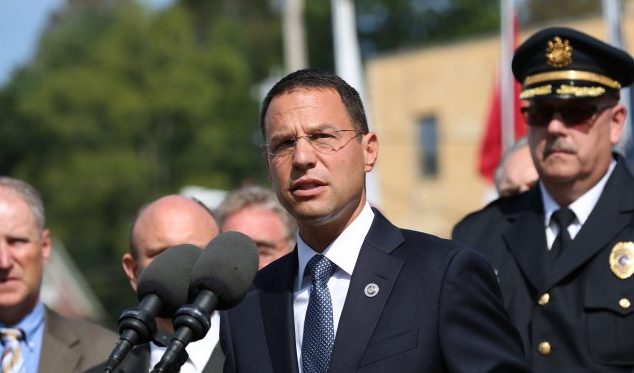MASTRIANO: The Regional Greenhouse Gas Initiative Will Haunt PA Long Into the Future

Pennsylvania is an energy powerhouse. We are the nation’s number three energy producer, number three coal producer, and the number two natural gas provider. Not only do we meet our own energy needs, but we also meet the needs of other states that depend on us to keep their own energy grids up and running. Sixty plants powered by fossil fuels account for over 60 percent of Pennsylvania’s electric generation.
It may make some sense for legislators in the 11 states who joined the Regional Greenhouse Gas Initiative (RGGI) to support the pact. After all, those states do not come close to the number of electricity production facilities we have here in Pennsylvania. Those states will not have to deal with the effects of rising consumer prices, plant closures, and job loss on a mass scale.
The carbon tax imposed by RGGI will result in immediate job loss across our energy sector. According to the Department of Environmental Protection, all five remaining coal power plants will be shuttered within a year of enactment. Not only will those workers be out of the job, but so will many of those in the coal production business which feeds into these power plants.
As companies look to invest in future natural gas facilities, are they going to invest in Pennsylvania or instead invest in states like Ohio and West Virginia who will not be subject to RGGI’s burdensome regulations and taxes?
The acceleration of Pennsylvania’s booming energy industry has been a blessing to our state. Many of our coal and natural gas energy production plants are in economically distressed communities. These areas were decimated as Pennsylvania’s manufacturing base shifted overseas in the past few decades.
Counties like Indiana, Fayette, and Montour have seen energy industry jobs provide a lifeline to the community. We are told by proponents of RGGI that those who are soon to lose their jobs will have to find jobs elsewhere such as in the renewable energy sector. There is no guarantee of that industry providing anywhere near the same amount of positions and pay that are enjoyed by fossil fuel energy sector workers. We all remember the failure of Solyndra in 2011 after being propped up with millions from the federal government. Renewable energy jobs cannot be relied on to replace the damage of RGGI.
Immediate job loss will not be the only negative impact of RGGI. Like all taxes, the carbon tax will be passed on to consumers in the form of higher electricity rates. A report by the Penn State Center for Energy Law and Policy found that consumers would pay up to $2 billion more in electricity costs over nine years.
Energy costs in the U.S. are already up by 25 percent compared to last year. Inflation in the economy as a whole has compounded the struggles of lower and middle-class families. We cannot afford to make high energy costs permanent by entering RGGI.
Supporters of RGGI say that billions in revenue from the carbon tax will be generated for the general fund and “re-invested” into struggling communities. I would much rather have money kept in the pockets of the everyday people as opposed to being subject to misguided spending by legislators and bureaucrats.
Lastly, RGGI will have adverse implications for national security. Crucial American allies in Europe rely on Pennsylvania natural gas imports to offset dependence on imports from the predatory government of Russia.
For example, vulnerabilities in the face of a more hostile Moscow include economic blackmail due to heavy reliance on Russian oil and gas. To counter this threat, nations like Lithuania and Poland built Liquefied Natural Gas (LNG) terminals as a way to reduce dependence on Russian energy. Due to cost and accessibility, most of the LNG imported thus far has come from Norway.
Imports from the United States began in 2017 and European leaders hope to expand the amount of LNG they purchase from Pennsylvania in the future. RGGI’s carbon tax to stunt the natural gas industry will make that quite difficult.
Some will say that any of the aforementioned adverse effects of RGGI pale in comparison to the cost of inaction to combat climate change. But Pennsylvania has already been making steady progress to limit CO2 emissions. According to the Consumer Energy Alliance, emissions in Pa. have dropped by 18 percent since 1990. Any further drops in emissions resulting from RGGI will be negligible. Fossil fuel-powered energy plants will simply relocate to less restrictive states and release the same amount of CO2 into the atmosphere.
Every RGGI participant state joined the pact after receiving approval from their respective legislatures. Governor Wolf, as he has done throughout his tenure, acted unilaterally to join our state to RGGI after not getting what he wanted from the General Assembly.
This sets a dangerous precedent. The General Assembly is the body that is closest to the people of Pennsylvania. No Governor, regardless of political party, should have unchecked unilateral power to impose a tax and enter our state into such a consequential interstate pact. This week, the state Senate acted by voting to disapprove the regulation to join RGGI. Next up is a vote in the House of Representatives. Following passage there, Gov. Tom Wolf will presumably use his veto pen and a legal battle in the courts will ensue.
One thing is for sure. RGGI will do far more harm than good.



